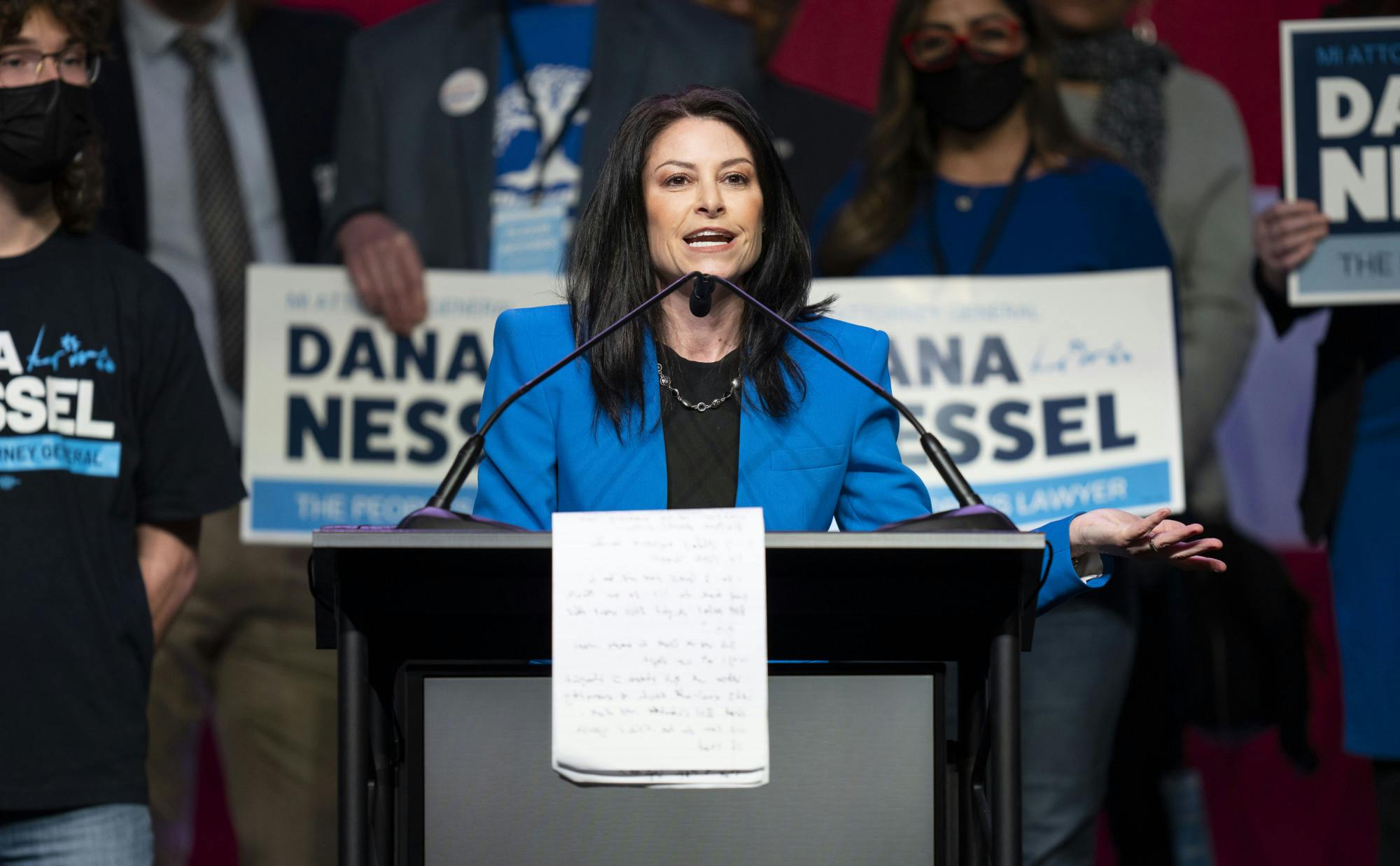The Michigan State University Board of Trustees’ decision to release thousands of long withheld documents relating to the university’s handling of sexual abuse by disgraced ex-MSU doctor Larry Nassar is “a step in the right direction,” Attorney General Dana Nessel said Friday.
But given the years her team has been waiting on them, the results of her newly-reopened investigation are uncertain.
“Memories fade, people move, people die,” Nessel told The State News Friday. “The longer an investigation goes on, the less likely it is to yield the information that the public really needs. I think that’s one of the unfortunate outcomes of having waited so long.”
In the time since her predecessor first requested that the university waive privilege over the documents in 2018, Nessel’s team of investigators has seen heavy turnover and lost memories of the intricate case, she said.
Nessel’s investigators are also up against fast-approaching or already-passed statutes of limitations.
Many of the offenses her team would pursue in their investigation into “how and why the university failed to protect students” from Nassar’s abuse for so long have a six-year limitation, Nessel said.
“What a coincidence that these are being relayed to us almost six years since the investigation started,” Nessel said.
If the documents contain evidence of MSU leaders failing to report information about Nassar’s serial sexual abuse, Nessel said criminal charges would likely “have come and gone in terms of the statute of limitations.”
And that’s a big if, Nessel said.
“I don’t want people to have the expectation that there’s some smoking gun contained in these emails,” Nessel said. “The fact is, there could be, but maybe there’s not. We don’t really know.”
Regardless of whether she can still put together criminal charges with the dated documents, Nessel said she’s thankful for the years of activism that led to their release.
It’s “better late than never,” she said.
Even if she can’t bring charges, she hopes her office’s work “might at least answer some unresolved questions" so survivors and the broader MSU community can "start to heal."
She said the reopened investigation will be “expedited,” but she won’t give a time estimate for how long people can expect to wait before hearing news of developments or charges.
It will be burdensome, she said, for her team to re-review all the materials from before the investigation was suspended in 2019, and to get through an unknown number of pages of new documents.
They’ve also been told it will take about four weeks for MSU to turn over the new documents in the first place, as the board only agreed to release the documents after the university’s general counsel has a chance to redact them for private or “unrelated” information.
Survivor Elizabeth Maurer said Friday that she hopes MSU is careful to not obscure “information of the important sort,” and instead protect survivors’ identities with the redactions.
Nessel said it’s “too early” to worry about MSU over-redacting the documents, but that her team will be careful to review them for potentially erroneous redactions.
The board’s decision Friday to release the documents is a reversal of their years-long commitment to not waive privilege over the records.
Nessel said she “had no idea it was coming” this week, but had come to think the board would eventually succumb to the immense public pressure.
Support student media!
Please consider donating to The State News and help fund the future of journalism.
Friday’s vote comes after years of dogged activism from survivors, parents and other campus groups.
Most recently, a group of survivors filed a lawsuit against the board over its secretive decision-making with the documents.
Recent decisions to withhold also spurred votes of “no confidence” in the board by MSU’s undergraduate student government, Council of Racial and Ethnic Students and Council of Progressive Students.
“This is a discussion that hasn’t gone away, and I think it was clear to the board that this was never going to go away” unless they released the documents, Nessel said.
Despite the public appetite for release, some have said it alone isn’t enough.
Rachael Denhollander, an attorney who advises institutions on sexual violence issues and the first woman to publicy accuse Nassar of sexual abuse, released a statment Friday commending the board’s decision but arguing that it’s only a small piece of reckoning with the issues that have plagued MSU’s campus.
“Document-dumping on a 5 yr old, tightly limited criminal investigation cannot and should not be the scapegoat for avoiding real transparency and reform,” she wrote in a post on the social media platform X, formerly Twitter.
Denhollander suggested the board embark on a complete “look-back assessment” of MSU’s handling of sexual assault reports in addition to providing the documents to the attorney general.
Nessel agrees, saying her investigation cannot be a substitute for a broader “culture shift” at MSU.
“Outside of the events that took place during the Nassar era, let’s face it, they’ve continued to have multiple issues when it comes to transparency and certainly when it comes to handling sexual harassment and assault cases,” Nessel said.
She believes Friday’s decision could be the start of a real reckoning for the university.
“(My investigation) by no means will resolve all of MSU’s unfortunately many issues in this realm,” Nessel said. “But, hopefully it’s a beginning to that.”
Discussion
Share and discuss “Nessel: Release of Nassar documents is “better late than never,” but challenges lie ahead for investigators” on social media.







